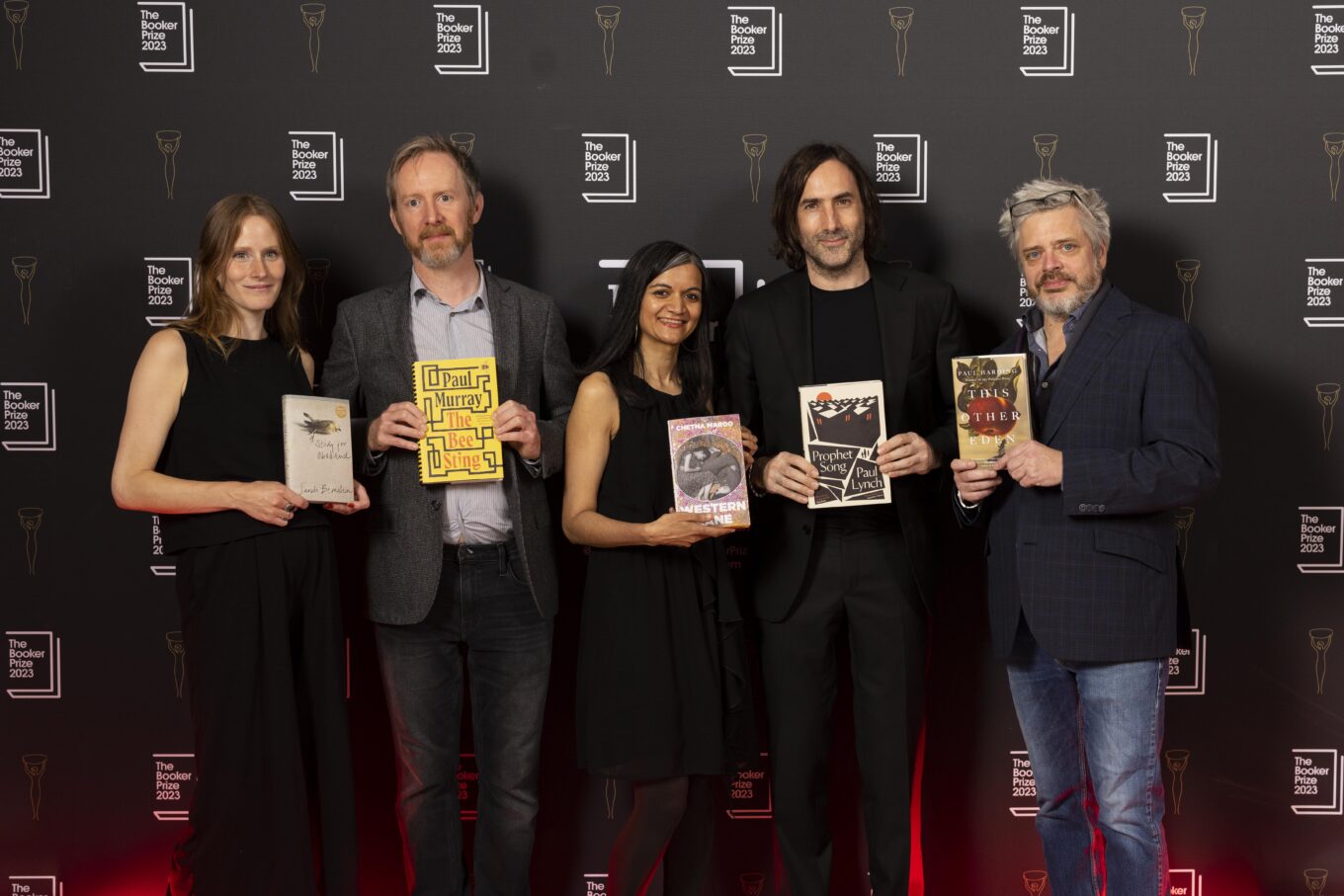Upon tomorrow’s announcement of this year’s Booker Prize winner, Literature sub-editor EMILY DRIVER discusses her impressions on the six positions shortlisted, and how those were shaped by meeting the authors at the Shortlist Readings at the Southbank Centre.
Two hurricanes, two debuts on the scene, three Pauls and a whole lot of generational trauma. No, this is not my last family holiday gone wrong. This is the 2023 Booker Prize shortlist. What can such a concoction of literature tell us about the world we live in today? I, along with a host of other literary enthusiasts, gathered at Southbank to unearth this question and hear readings from the shortlisted books by the authors themselves. Creativity, fame and the continuing value of literature to transmit emotion and capture experience in a sea of virtual voices were amongst the many topics discussed in conversation with the chair of the discussion, Sara Collins.

First up on the whistle-stop-tour through the shortlist was Canadian author Sarah Bernstein. Admittedly, her novel, Study for Obedience, was the text I was most excited to hear discussed precisely because the rippling surface of Bernstein’s prose seems to eschew any draught of meaning you try to pour on it. Much moves and remains in obscurity in her novel, from its arresting opening lines, ‘It was the year the sow eradicated her piglets. It was a swift and menacing time’ – which, as Collins pointed out, offers an unnerving advance on Dickens’s A Tale of Two Cities. What ‘year’ and ‘time’ the novel resides in remains one of its many points of contention. Study for Obedience invokes an uncanny temporality of doubleness, perching itself on the threshold of a historical work – with its pastoral settings riddled with superstition – and the modern day, littered with all of its miscellaneous technology and debris. In the particular passage that Bernstein selected to read, the present is particularly palpable: scattered with familiar references to Microsoft Teams, the internet and a TV show about horses. I suspect Bernstein chose this extract as it condenses one of the novel’s central preoccupations: strength within obedience. After learning of her brother’s sickness, the unnamed narrator dutifully attends to his physical needs. Subtly, yet suggestively, Bernstein demonstrates how this initial act of subservience unfolds into an assertion of agency and autonomy, as the narrator determines, ‘I would do anything to save him the slightest bit of discomfort. Nevertheless, I would, I felt, have to take matters into my own hands’. Interest in this particular strain of power, Bernstein revealed, was inspired by the work of the artist Paula Rego, whose paintings suggest that ‘obedience’ – a term typically invoking a feminised passivity – could become agental, even ‘murderous’, according to her epigraph. It is within this murky, underexplored corner of feminism – faintly reminiscent of some of Woolf’s female characters who find power in their embodiment of duty and self-sacrifice (namely, Mrs Ramsey and Mrs Dalloway) – that I think Bernstein harnesses a profoundly original story of capability and culpability. And even if she isn’t awarded the Booker prize tomorrow, she can at least rest easy in being awarded the title of certified ‘girlboss’ by Collins, who commended her for navigating press tours, award shows and a newborn all at the same time.

Side-stepping from girl-power to guy-hustle, Collins turned to ask American writer Jonathan Escoffery about his swift success as a writer with his debut novel, If I Survive You. ‘It feels like a film version of what it’s like to be an author”, he replied in a language we all immediately understood. Such common understanding, however, is not a privilege to which his characters are privy. As Collins pointed out, his racially ambiguous protagonist, Trelwany, is constantly asked not ‘Who are you?’ but ‘What are you?’. Escoffery explained that in Miami, where he is from and where his novel is set, cultural and racial heritage are central to discourses around identity, with people commonly referring to themselves through hybridised formulations such as ‘Jamaican-American’ or ‘Cuban-American’. For Escoffery’s reading, however, he chose not to focus on Trelwayny’s troubles of belonging but instead the personal crisis faced by his cousin, Cukie, at the birth of his son. Oscillating tonally between humour and horror, what should be a moment of profound joy is riddled with financial fears, problems of identification and anxieties of competence at fatherhood. But while this character is peripheral, his predicament is not. The delivery room scene deftly condenses the problem all of Escoffery’s characters are facing: how to keep a family from falling apart. It asks how one transmits love when they themselves are evaporating in the ether. If I Survive You is alternately comic, tragic but not heroic in its handling of this question. Like Bernstein, Escoffery instead opts for demonstrating the triumph of quiet acts of courage within a corrosive and unaccommodating climate.
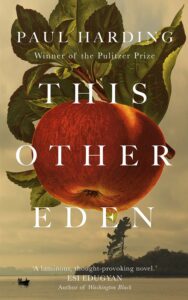
Little do questions of belonging trouble the inhabitants of Paul Harding’s Apple island in This Other Eden, which we turned to next. Anchoring his fiction in the historical past of Malaga, an Island off the coast of Maine, Harding figures a hermetically sealed ‘racial utopia’ (as Collins described it) whose democratic ideals have been preserved by dint of its detachment from the mainland. As Harding explained, this landscape allowed him to play with and invert the typical architecture of marginalisation: the islanders have the central perspective in the novel; meanwhile, it is the mainland which is pushed into the margins. But liberation from the usual taxonomic structures of civilisation does not last for long, nor does it make for plain sailing in the novel. This Other Eden opens explosively in the eye of a hurricane, and mid-way through the novel its sanctified borders are breached by a missionary expedition from the mainland. For his reading, however, Harding explored another aspect of unrest in the novel – the internal turmoil of the island’s matriarch, Esther Honey, as she grapples with the memory of her violent father. In a passage that tapers from a breathtaking description of the island into Esther’s consciousness, where she imagines herself being blown off it, Harding’s spatialisation of her anxieties further affirms the sanctity of the island and the threat imposed by the dark waters beyond it. The passage deftly captured the dreamlike atmosphere that the novel as a whole tends to evoke, cultivated by Harding’s lush, lyrical prose charged with a nerve-ended tremulousness. Harding’s confidence as a writer was matched with his confidence on stage, cooly reflecting upon his previous Pulitzer Prize win (‘Oh, that old thing’ – *hand flick*) and the joys of teaching, which evidently involves popping open a bottle of champagne whenever he or one of his students wins an award. I’m still working on how to sign up for his class before tomorrow.
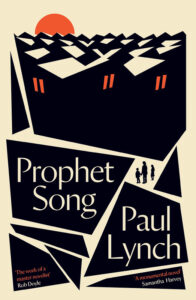
We then swiftly moved from Paul Harding’s utopia to Paul Lynch’s dystopia. Lynch’s Prophet Song follows the nightmare logic of one mother’s fight for survival in a harrowing vision of Ireland under the siege of tyranny. His reading fell right at the watershed moment where the familiar world begins to dissolve and chaos unfurls. Inexplicable happenings were invoked through the repeated phrase, ‘what the news is’, which directed us through a sliding montage of apocalyptic scenes of darkness falling and people fleeing. The novel’s searing vision was powerfully charged by Lynch’s electrifying reading, which, in its incantatory repetition of ‘news’, suggested a cadence well on its way to extinction until the word was no longer ‘new’ and, in the fashion of McCarthy’s The Road, language and civilisation are figured in a mutual state of decay. Interestingly, despite locating the genesis of his novel in 2020’s political scene – Trump, Brexit and widespread political surges to the right – Lynch was careful to correct Collins’s polemical assessment of his work and label himself a ‘non-political novelist’. Polemics and didacticism, he explained, ‘deadens fiction’. Alternatively, his focus was oriented towards the experience and effects upon consciousness of such social upheavals through his protagonist, Eilish. This way, he posited, the novel explores ‘moral weight’ without becoming ‘political entertainment’. The art-politics problem is definitely a thorny one, and some may not be so easily convinced of their disentanglement, especially in a novel such as Prophet Song that deals so directly with tyranny. However, it may be useful to think of Lynch’s dystopia in similar terms to Ursula Le Guin’s understanding of her science fiction: a ‘thought experiment’ which doesn’t begin from any ideological standpoint but presupposes some changes to the world and probes into their consequences.
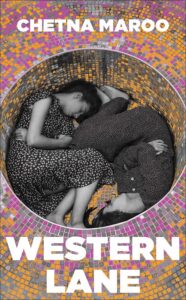
While solace may retreat into the darkness in Prophet Song, it creeps up quietly in whispers and soft caresses in Chetna Maroo’s extraordinary debut novel, Western Lane. Among other things, Western Lane is a story about sport, specifically squash, and how it can act as a balm for the grieving. When listening to her read from the opening of the novel, I became aware of how squash was not only a conduit through which Maroo explores a dynamic movement through bereavement and the triangulated father-daughters relationship after the loss of their mother but how it became a poetic principle woven into the fabric of her writing. Full of hypnotic rhythms and repetitions mirroring the ball’s movement back and forth, the novel exerts a physicality emanating from the very unit of her sentences. Reflecting on how the content of her story served as a guidepost for writing, Maroo, in one of my favourite quotes from the evening, explained that, for her, the act of creativity was closer to an act of discovery: ‘I feel like the story already exists and I am trying to find it’. The effort to recover that story, Maroo explained, sometimes took her down the wrong avenues, and her writing process was one of incessant editing and cutting to get to the pure essence of the story. This is clearly evidenced in her crystalline, warm and tender prose, which orbits around the text’s central silence – death, and the way it has reverberated through the family. Subsequently, Collins asked Maroo how her success has been received by her own family. As it turns out, Maroo is not only nationally but internationally revered – ‘the English family are proud’, she said, but ‘the Indian Whatsapp went mad’.
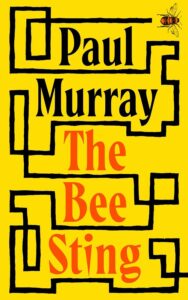
‘Pretty wild’ and ‘the weirdest week of my life’ were how the final Paul and shortlisted novelist of the night (yes, in that order), Paul Murray, described the experience of being nominated for the 2023 Booker Prize. His tour-de-force novel, The Bee Sting, springs forth from the Tolstoyian principle that all unhappy families are unhappy in their own way – and this unhappy family’s uniqueness consists of a 650-page cocktail of post-crash Ireland, car dealerships, doomsday prepping and boyfriend drama. Despite being given the last slot, Murray’s reading from the opening of his novel certainly did not let the tempo of the evening drop. From a murder that somersaults into small-town gossip and then cartwheels into a description of Cass and Elaine’s friendship, Murray’s verbal pyrotechnics won the room over in fits of laughter. With his jokester title cemented, Collins was eager to ask Murray about some of the weightier themes that are jostled in and against the wit of his work. On the subject of climate change, Murray discussed the difficulty it posed to the novel, drawing upon Timothy Morton’s notion of the ‘hyperobject’, too big and too complicated for the mind to comprehend – never mind be represented in fiction. If the threat is to be felt, it is to be felt in flashes and fragmented forms, and natural disaster emerges as a silhouette, perceptible but barely defined, stalking the horizons of his fiction. Meanwhile, he explained how the car industry became the central focus of his post-humanist critique of the ‘illusion’ of control and mastery over one’s domain – figuring the car as the ultimate fantasy of autonomy and individuality.
At the end of the readings, Collins circled back to ask the authors a question that had been raised at the beginning of the night by Southbank’s head of Literature, Todd Hodgkinson: why, in a world of ephemera, AI and social media, does literature still matter? It is a question that the Booker Prize and many other literary organisations appear to be increasingly conscious of. And I couldn’t help but think, as the question encased itself around the evening, that the people in that room at Southbank were like guardians or keepers of something sacred and under threat. Luckily, Paul no.3 (aka Murray) came to the rescue, positioning himself against one of his characters who conceives of the novel as the beginning of a superficial consumerist culture ‘meant to distrust and entertain us’. Murray rebuked this by arguing the purity of the medium as just ‘one person’s going into painful parts of themselves, no corporations and no blueprints or algorithms involved’, he explained before briskly adding, ‘yet!’. Agreeing with Murray, Bernstein lauded the novel as a ‘dialectical tool’ that ‘invites thinking’ and lends itself towards ‘competing realities’ in a way in which no other medium can compare. Threat contained. For now.
The stakes are high this year, with a bottle of champagne, a WhatsApp legacy and a movie fantasy all on the line. Oh, and the £50,000 prize. While the odds of a Paul winning are 1:2, originality of form and style tends to score highly in the Booker’s book. In this regard, I think Bernstein’s Study for Obedience has potential. However, after the readings at Southbank, it was clear that Murray’s The Bee Sting takes the money for crowd favourite. Will the judges be obedient to Bernstein, or give in to the sting of Murray – or perhaps turn their gazes elsewhere?
The winner of this year’s Booker Prize will be announced tomorrow, 26.11.2023. Watch live at 9pm UK time on the Booker Prize’s YouTube channel.
Featured image: the authors shortlisted. Courtesy of The Booker Prize.


